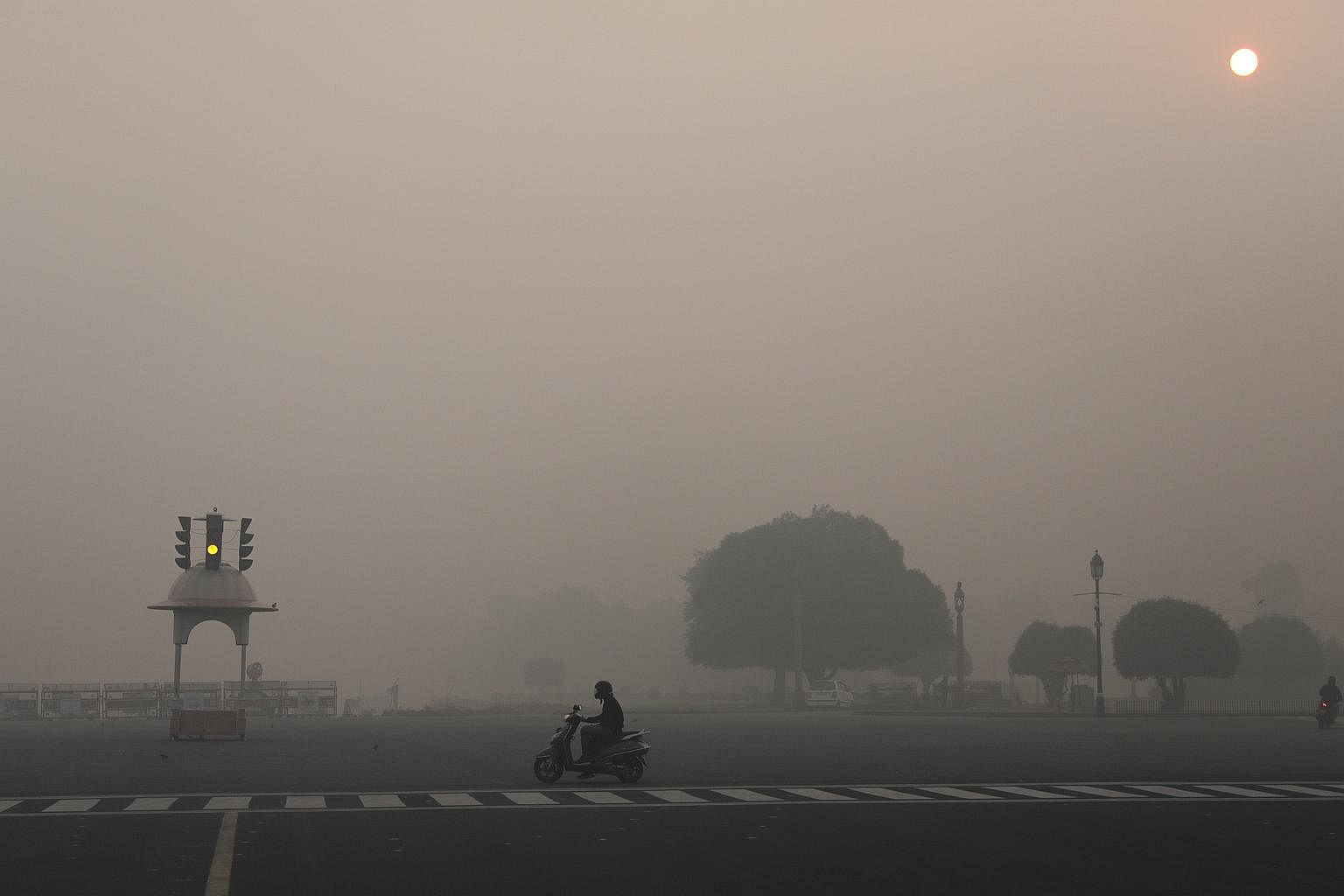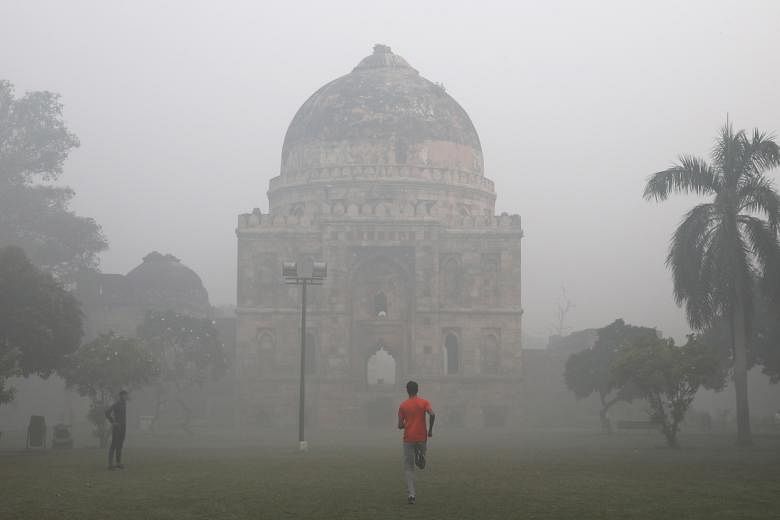NEW DELHI - Skies over Delhi and its surrounding areas hung heavy with smoke and its air quality turned "severe" - the worst tier on the Air Quality Index (AQI) scale - a day after Diwali.
Residents woke up to grey, overcast skies with low visibility on Friday (Nov 5) after celebrating the Festival if Lights.
This year, pollution levels started going up ahead of the festival as fireworks were lit despite a ban to prevent air quality from deteriorating any further in Delhi and its surrounding areas.
The festivities coincide annually with seasonal farm fires, seen as a major factor of pollution, as farmers burn stubble to clear their land for the next crop.
According to data from the Central Pollution Control Board, the level of PM 2.5, very fine particulate matter measuring 2.5 microns or less in diameter, was 10 times above the safe limit of 50 micrograms per cubic metre.
"The extremely calm wind conditions in Delhi combined with... stubble share are two major factors," said the System of Air Quality and Weather Forecasting And Research (Safar), a body under the Ministry of Science in a Diwali forecast, which predicted that residents would get relief only by Sunday evening.
It noted that the contribution of stubble burning would touch 35 per cent on Friday and 40 per cent on Saturday but added that even if half the amount of firecrackers burned last year was lit this year, the PM2.5 will enter the severe category and that the AQI will cross "500+".
The AQI crossed 500 in parts of the city on Friday.
Delhi, which has regularly featured and even topped the most polluted cities' list, sees dangerous pollution spikes every winter.
Cold weather traps pollutants in the atmosphere during the winter months.
Stubble burning adds to existing pollution from vehicles, construction activity, burning of waste and use of unclean fuels.
A 2019 report in medical journal The Lancet concluded that 1.7 million premature deaths in India were due to the pollution, which has led to an increase in cases of lung cancer, heart disease and diabetes.
On Friday, residents of Delhi and its satellite cities of Noida and Gurgaon uploaded pictures of the grey shroud with only the outlines of nearby buildings visible in many parts of the city.

This year also saw more intense public debate on the fireworks ban, which came into force last year, as firecrackers are seen as a must-have in Diwali celebrations, and criticism that the authorities were unfairly targeting a festive tradition instead of acting against major sources of pollution, such as stubble burning.
Yoga, spiritual guru, and author Sadhguru controversially tweeted that children should be able to celebrate the festival with firecrackers, while parents should walk to the office for three days to cut pollution.
Still, there are those who complained about the continued lighting of firecrackers despite the ban, saying that those who did so had poor civic sense and were worsening a precarious situation.
Amid the political debate over the firecracker ban, Delhi Environment Minister Gopal Rai said air pollution, though lower compared with last year, had increased due to firecrackers and an increase in stubble burning, with 3,500 hot spots detected.
Mr Sunil Dahiya, an analyst at the Centre for Research on Energy and Clean Air, said: "The firecracker ban didn't seem to be successful in Delhi, which along with other sources of pollution, including the increasing share (of pollution) from stubble burning, led to hazardous air pollution levels."
Ms Anumita Roy Chowdhury, executive director of the Centre for Science and Environment, said pollution has to be tackled throughout the year and not only when the problem flares up or as part of emergency measures.
"This whole focus on pollution has to be sustained through the year. The pollutants are already trapped (in the air) and there is no wind to blow them away. All you can do is not add fuel to the fire. And emergency actions don't minimise pollution," she added.
Ms Chowdhury noted that the government needs to scale up public transport, introduce a proper vehicle parking policy, ensure that the city's entire waste is segregated and disposed of and not left around to be burned.
In addition, the government should provide farmers with machinery to prevent the burning of stubble and tackle illegal industrial units using dirty fuel.
"If you are able to do all that, overall pollution will come down. You can't stop weather patterns but you can control how much trapping of pollution takes place."


